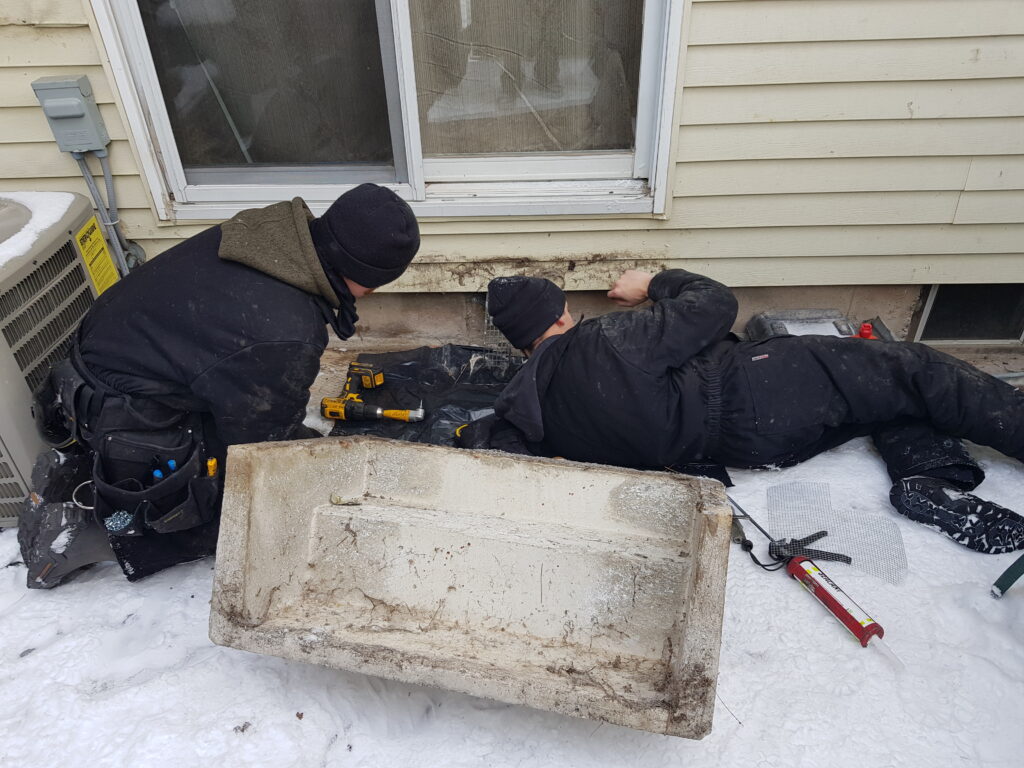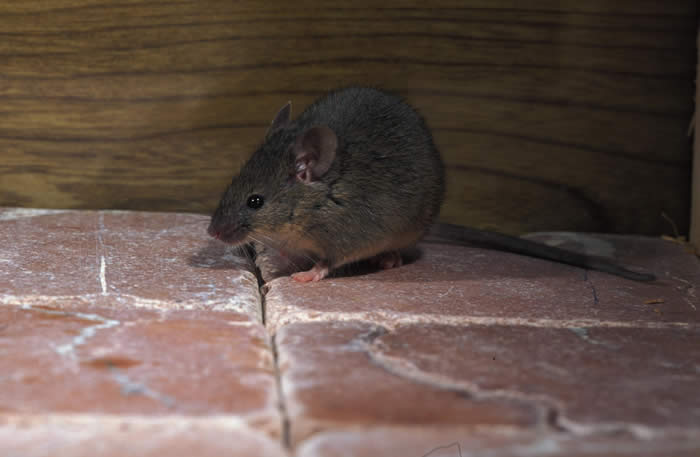You’re probably familiar with the cliche image of a woman standing on a chair, shrieking as a mouse scurries past. Why do so many people fear these tiny creatures when humans are so much larger? Mice aren't venomous or aggressive like other wildlife, but they pose more insidious risks: Rodents, including mice, can transmit diseases through bites and waste. As a result, you should contact mice removal professionals if you suspect an uninvited guest.
How can you tell if you have mice nesting in your walls? The key is learning as much as possible about these little critters.
What Are the Signs You Need Professional Mice Removal?
Mice often fly under the radar, so homeowners may not initially realize they have a pest problem. Since mice are nocturnal, they sleep during the day and conduct their business at night, so you're most likely to see or hear them in the late hours when most homeowners are asleep.
However, you may never actually see a mouse, even with a severe infestation. Instead, you're more likely to notice small signs of their presence:
-
Droppings
-
Urine pillars
-
Damaged foodstuffs
-
Tracks
-
Grease rubs
-
Scratching in the walls
You may also detect the smell of ammonia, though cooking, candles and other strong scents can cover it up. Pets may pick up on this smell before you do, leading them to behave strangely. While your dogs and cats may not be able to actually catch mice, knowing there's a small prey animal in the house will drive them crazy.
Finally, you may notice teeth marks on furniture and even structural elements such as wires or piping. Mice's teeth grow throughout their lives; gnawing wears them down, preventing discomfort and injury. They can chew through incredibly strong materials, causing expensive damage to homes.
Where Do Mice Live in Houses?
There are over 1,000 species of mice, and they inhabit every continent and country. Interestingly, the Arctic, Antarctic, New Zealand and other relatively isolated places aren't natural habitats for mice. As it turns out, humans inadvertently brought these critters to such areas during trade, travel and scientific exploration. The industrious nature of mice allows them to survive even in the coldest locations as long as there's a human presence.
Though you can find mice in deserts, forests and prairies, different species have specific preferences for where they live. When we think of mice, we often imagine the common house mouse, a species adapted to co-exist with people. They set up camp around human structures, often living outside in the warmer months and inside when the temperature drops. When indoors, they create nests out of whatever they can find. In houses, that may mean furniture stuffing, insulation and paper. They prefer to nest in hidden spaces:
-
Wall voids
-
Attics
-
Basements
-
Crawl spaces
-
Storage areas
They tend to choose places close to food and water, making kitchens a top spot. While cartoons depict cheese as mice's food of choice, they actually eat grains, seeds, fruits, carrion, insects and even small vertebrates in the wild. Once they enter a home, however, they usually eat whatever they can get their paws on.
Where Do Mice Live Outside?
In the wild, most species build their shelters in underground burrows, though a few outliers, such as the Asian tree mouse, prefer higher places. As the name suggests, these mice construct nests in trees or utilize trunk hollows. Whether they live underground or in trees, most species prefer solo life and are territorial in the wild, as they must compete for resources.
In contrast, when mice inhabit human structures, they tend to be more cooperative and live in larger groups. The communal effort offers greater benefits, such as more food and larger nests, than working alone. Groups of mice also raise their young together, so the nest as a whole benefits when all members care for the offspring.
What Should Homeowners Know About Mice?
Mice are more physically adept than you may think. For example, they can jump up to 18 inches off the ground. Given their small size — no larger than 7 inches — that’s like a six-foot-tall basketball player jumping more than 15 feet straight up. Additionally, they're more limber than an Olympic gymnast and can fit through holes the size of a dime, making it difficult to detect places of entry if you don't know what to look for.
Mice are also skilled at swimming and scaling vertical surfaces. These furry creatures are wild at heart but can make excellent pets — though you should never try to tame a wild mouse. Instead, plenty of pet stores sell domesticated breeds along with everything you need to keep them happy and healthy.
Of course, if you decide to get pet mice, it's important to note that they have very short life ps — six years is the maximum in captivity, though it's ancient compared to the 2.5 years mice live in the wild. They also have incredibly fast heartbeats, up to 632 beats per minute, compared to our heart rate of 60-100 beats per minute. Additionally, mice have built-in thermometers, using their whiskers to detect temperature changes on the surface and even determine when the terrain beneath them alters.
Why Should You Call Mice Removal Professionals?

When you search "how to get rid of mice," mouse traps and poisons usually come up. However, these approaches are inhumane, killing animals that don't know the harm they cause. Like all wildlife, mice instinctually seek warmth, food and safety, which humans abundantly supply. Also, construction can drive rodents from their natural habitats and eliminate essential food sources, pushing mice to invade human residences to avoid starvation.
Hiring wildlife removal professionals ensures your home is pest-free without unnecessary killing. That means you don't have to worry about critter corpses rotting in your walls, potentially causing illness and foul odors. These experts can also identify points of entry and seal them off, preventing rodents from infiltrating your home in the future. They can also clean up nests, droppings and other things that may carry disease, keeping your family and pets safe.
Skedaddle Wildlife Control knows what mice are capable of, and we have the tools for humane mice removal. In fact, we can assist with a variety of wildlife, including skunks, raccoons, squirrels, bats and bugs. If you suspect you have mice in your house and need wildlife removal services in Madison, give us a call or contact us through our online form. We’re here to help you reclaim your home.



